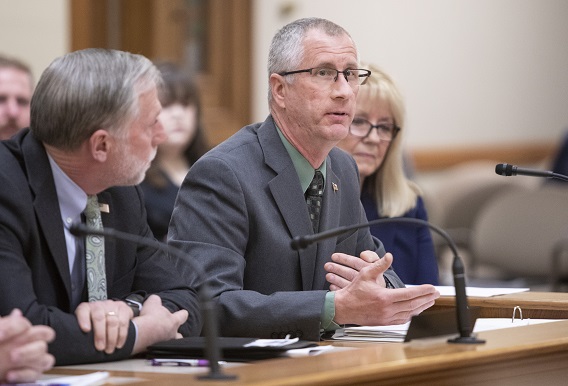
Pre-Existing Condition Guaranteed Coverage Act
Approximately 1 out of 6 people in Wisconsin has a pre-existing condition and just about everybody knows somebody living with one. Whether that person is your family or extended family, friend, colleague, or neighbor; a pre-existing condition should not affect their ability to purchase healthcare.
I’ve co-authored the Pre-Existing Condition Guaranteed Coverage Act (2019 – 2020 Assembly Bill 1) with Senator Andre Jacque (R- DePere) to ensure that no matter what happens at the national level, here in Wisconsin our residents won’t be denied access to life-saving treatment or necessary healthcare just because of challenges they’ve already faced or continue to deal with in their health history.
Per the non-partisan Legislative Reference Bureau: “Currently, the federal Patient Protection and Affordable Care Act generally allows premium rates to be based only on individual or family coverage, rating area, age, and tobacco use; requires group and individual health insurance policies to accept every employer and individual that applies for coverage, known as guaranteed issue, and prohibits health insurance policies from imposing preexisting condition exclusions.”
Assembly Bill 1 will enshrine pre-existing condition protections into Wisconsin State Statute in a way that would make our state one of only five in the country (according to a report from the non-profit Commonwealth Fund), and the only one in the Midwest, to ensure that all three elements of pre-existing condition protections would remain in place for state residents regardless of changes at the national level.
Specifically, the Pre-Existing Condition Guaranteed Coverage Act will prevent insurance companies from implementing the following provisions: denying someone a policy because they have a pre-existing condition (the “guaranteed issue” requirement), refusing to cover services that people need to treat a pre-existing condition (“pre-existing condition exclusions”), or charging a higher premium based on a person’s health status (the “community rating” provision).”
As with the Affordable Care Act, the commissioner of insurance must ensure a statewide open enrollment period allowing individuals, including individuals who do not have coverage, to enroll in coverage. Furthermore, health benefit plans must provide special enrollment periods for certain qualifying events such as marriage, divorce, adoption, child birth, etc. described in federal law.
Whether you live in an apartment in the city, a farm in rural Wisconsin, or a home in any small town, village, or suburb; my introduced legislation and votes have consistently been to ensure everyone has access to high quality affordable healthcare.



